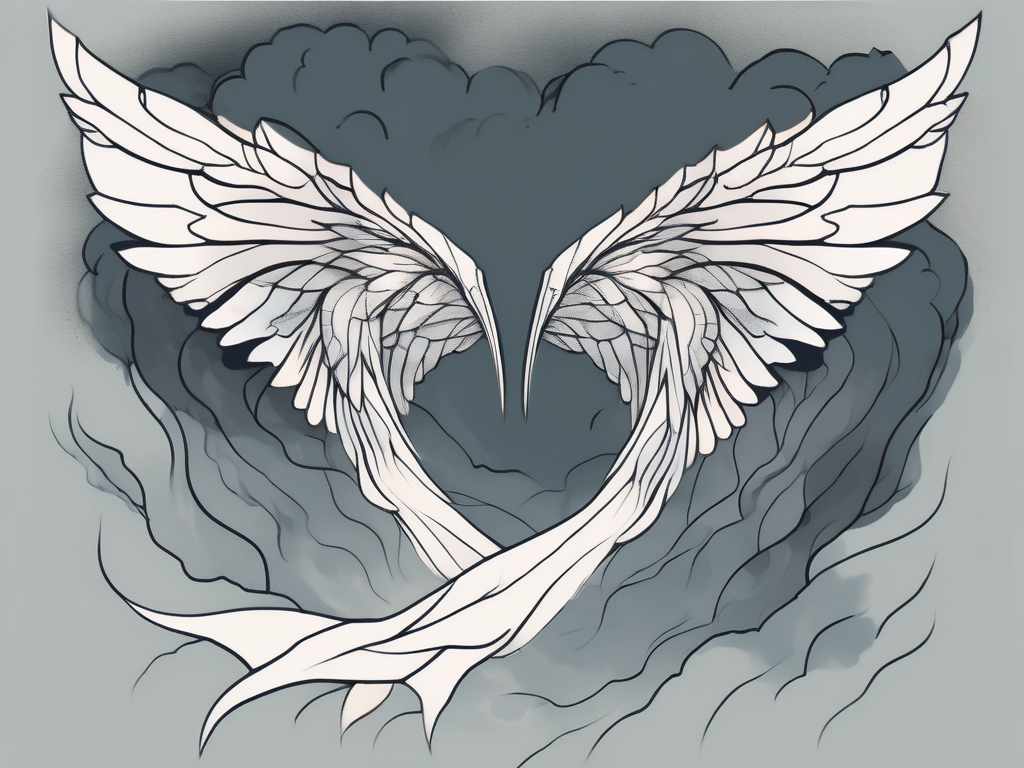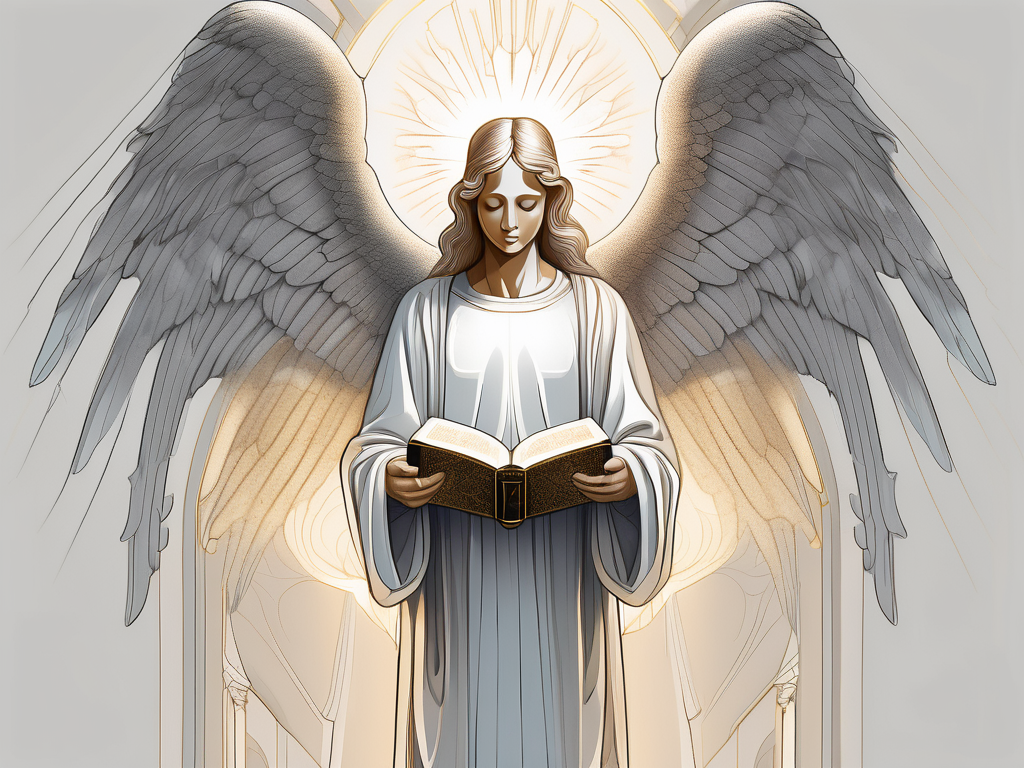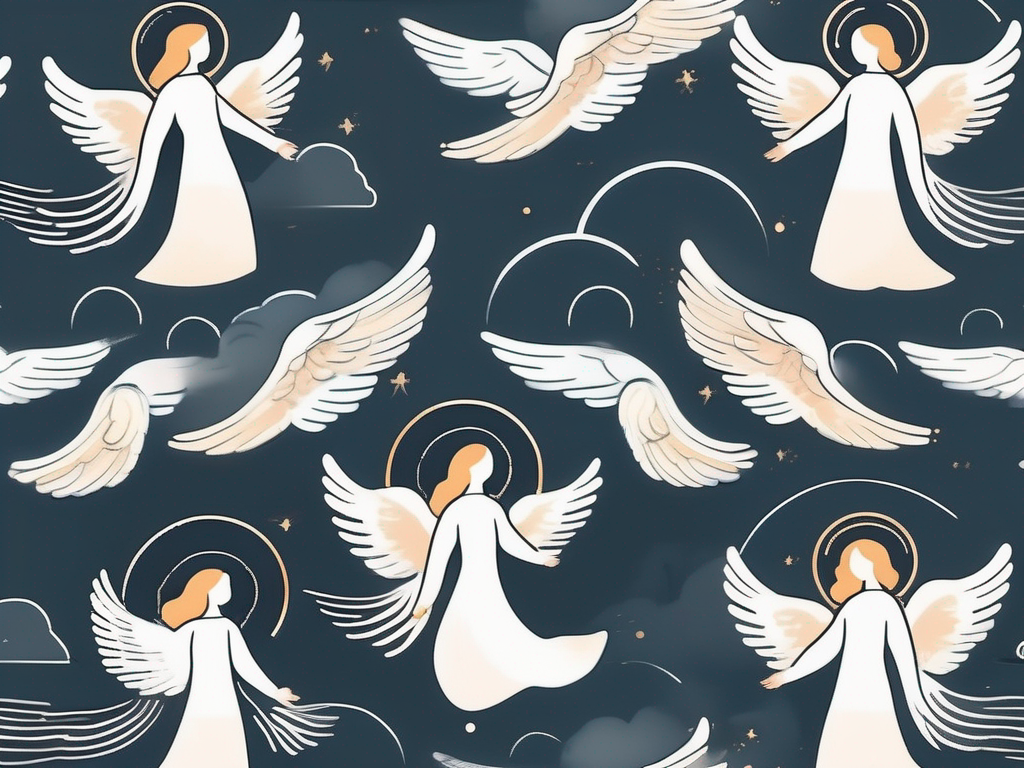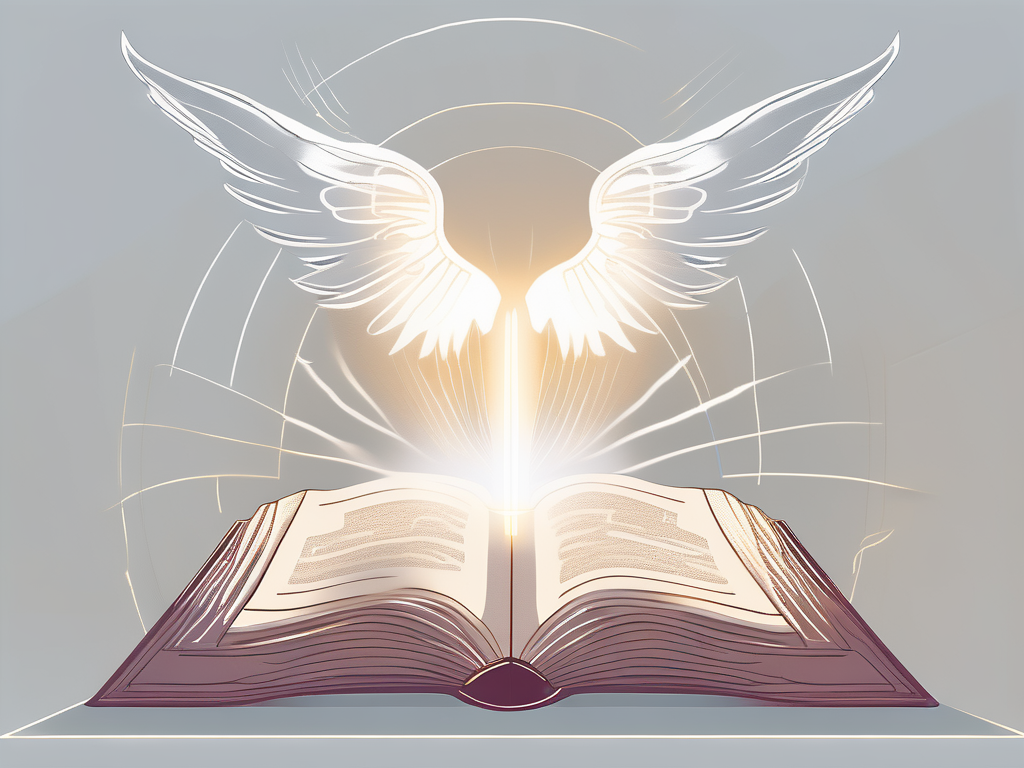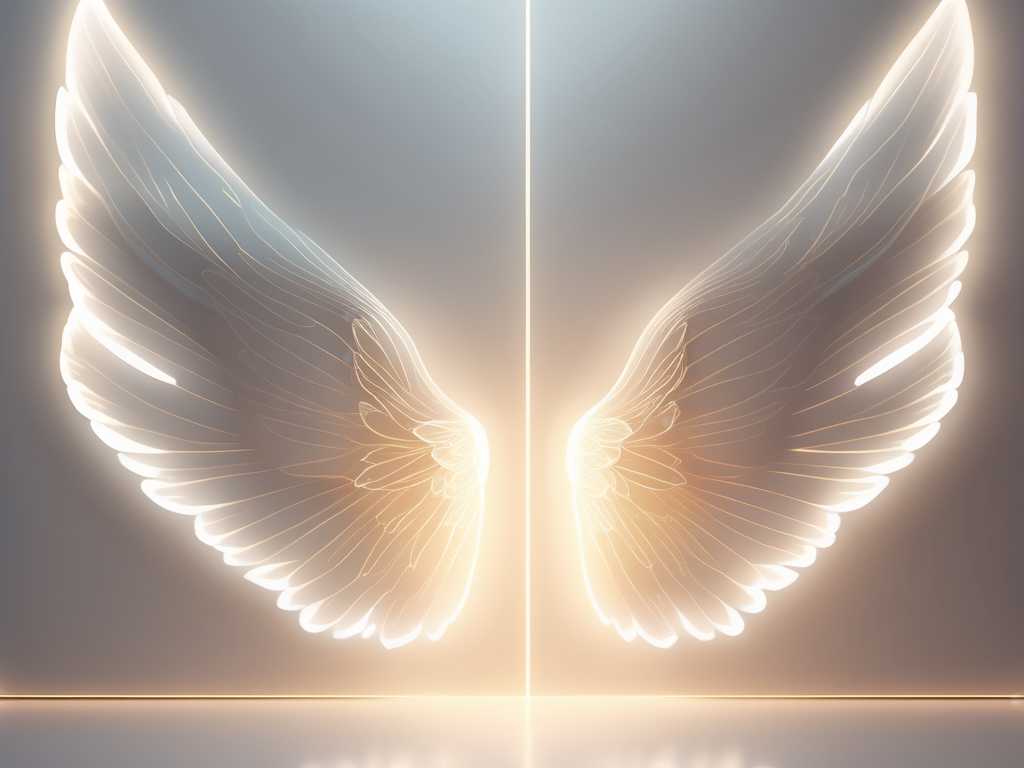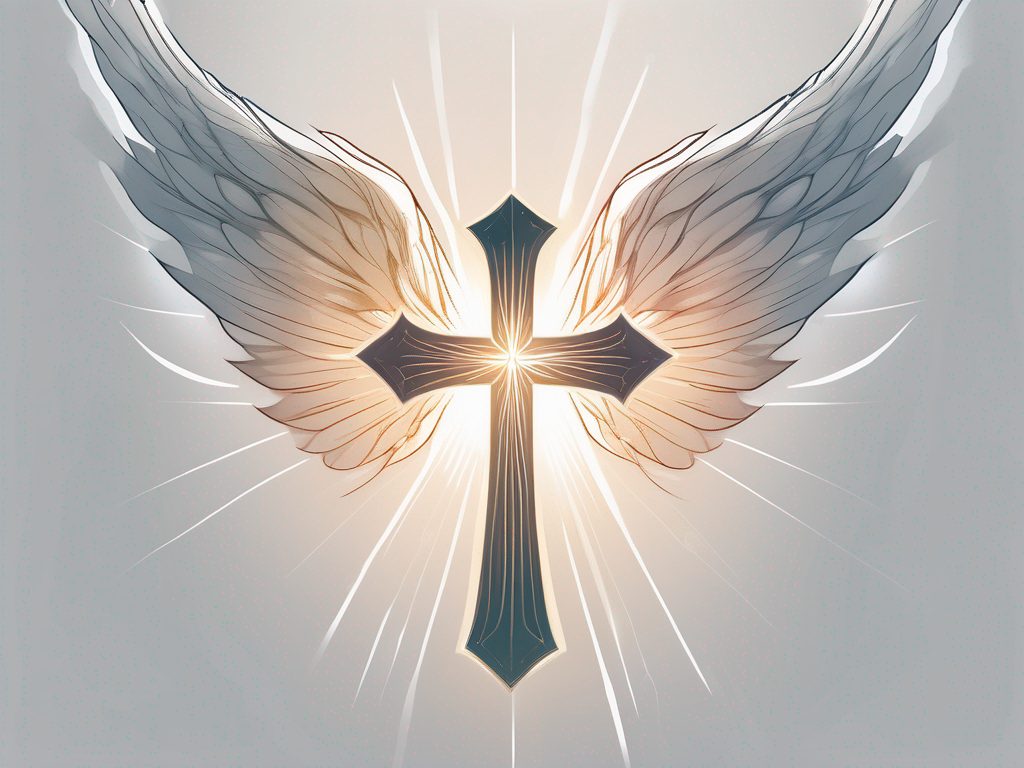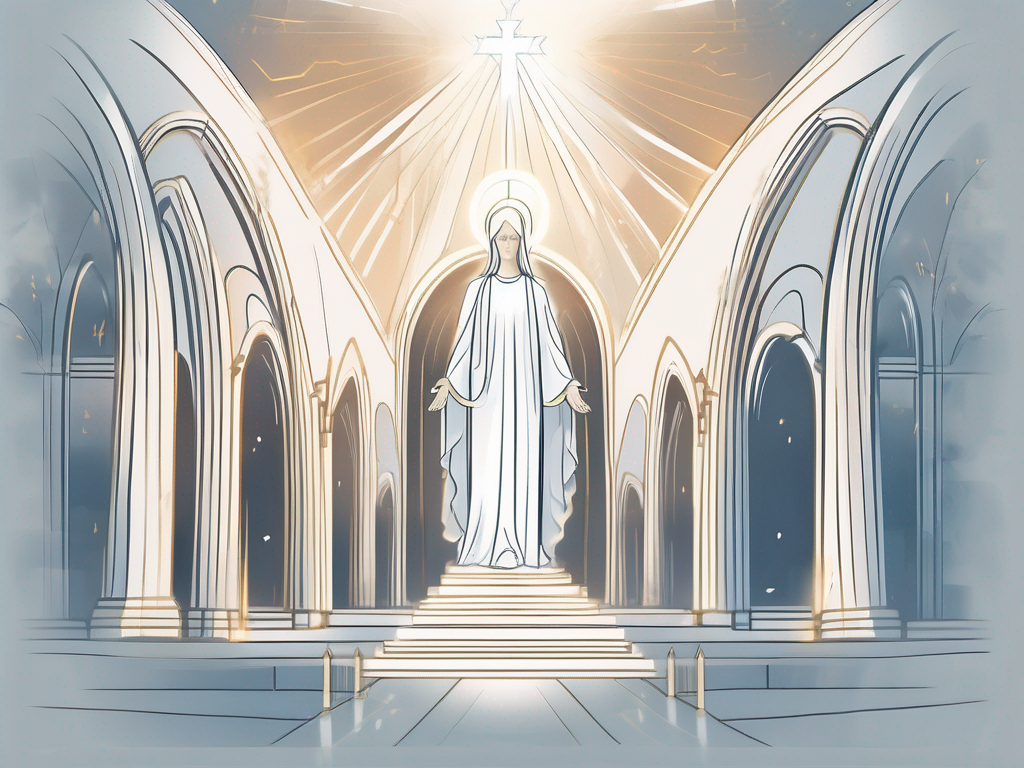Jewish mythology is a fascinating realm filled with gods, angels, demons, and supernatural beings that have captivated scholars and enthusiasts alike. In this article, we will delve into the depths of this enigmatic pantheon and shed light on its intriguing aspects. From the concept of God in Judaism to the influence of other cultures on Jewish mythology, let’s embark on this journey together.
Understanding Jewish Monotheism
At the core of Jewish mythology lies a staunch belief in monotheism – the worship of only one God. This concept sets Judaism apart from many other ancient religions, which often feature multiple deities. In Jewish theology, God is all-powerful, all-knowing, and ever-present, transcending the boundaries of time and space. The idea of an omnipotent, singular deity plays a fundamental role in shaping Jewish mythology as we know it today.
One of the most important prayers in Judaism that reaffirms this belief is the Shema. The Shema serves as an affirmation of God’s oneness, emphasizing the central monotheistic principle in Jewish theology. Recited daily by devout Jews, this prayer serves as a constant reminder of the unity and uniqueness of God in Jewish mythology.
Furthermore, the belief in Jewish monotheism is deeply rooted in the historical and cultural context of the Jewish people. Throughout their history, the Jewish community has faced numerous challenges and adversities, which have tested their faith and commitment to their monotheistic beliefs. From the Babylonian exile to the Roman occupation, the Jewish people have endured periods of persecution and oppression, yet their unwavering belief in the oneness of God has remained steadfast.
In addition to the Shema, there are various other rituals and practices in Judaism that reinforce the concept of monotheism. For example, the observance of the Sabbath, a day of rest and reflection, serves as a weekly reminder of God’s creative power and ultimate authority. During this sacred day, Jews refrain from engaging in work and instead devote their time to prayer, study, and spending time with family.
Moreover, the Torah, the sacred text of Judaism, contains numerous stories and teachings that highlight the monotheistic nature of God. From the creation story in Genesis to the Ten Commandments, the Torah emphasizes the singular and supreme nature of God, guiding the Jewish people in their understanding and practice of monotheism.
It is important to note that Jewish monotheism not only shapes religious beliefs but also influences the ethical and moral values of the Jewish community. The belief in a single, all-powerful God fosters a sense of responsibility and accountability towards one another and the world. The concept of tikkun olam, or repairing the world, is deeply rooted in Jewish monotheism, as it encourages individuals to actively engage in acts of kindness, justice, and compassion to make the world a better place.
In conclusion, Jewish monotheism is a central and defining aspect of Jewish mythology. It sets Judaism apart from other ancient religions and serves as the foundation for religious practices, rituals, and ethical values. The belief in a singular, all-powerful God has shaped the Jewish community throughout history, providing strength and guidance in times of adversity and inspiring acts of compassion and justice. The Shema and other religious practices serve as constant reminders of the unity and uniqueness of God in Jewish mythology, reinforcing the core principle of monotheism.
The Lesser Known Deities in Jewish Texts
While Jewish mythology primarily revolves around the worship of a sole God, there are references to lesser-known deities in Jewish texts as well. These deities, although not accorded the same level of prominence as the central God, play significant roles in certain mythological narratives. Among these lesser-known deities, angels hold a prominent place in Jewish mythology.
Angels are seen as divine messengers, intermediaries between God and humanity. They appear in various stories throughout Jewish texts, carrying out important missions on behalf of God or delivering messages to prophets. These celestial beings contribute to the intrigue and mystery that pervade Jewish mythology.
One such angel mentioned in Jewish texts is Gabriel, the archangel. Gabriel is known for his role as a messenger, delivering important revelations to prophets such as Daniel and Mary, the mother of Jesus. In the Book of Daniel, Gabriel appears to the prophet and provides him with visions and interpretations, offering guidance and insight into the future. This interaction between Gabriel and Daniel showcases the significant role angels play in facilitating communication between the divine and human realms.
In addition to angels, Jewish texts also mention the presence of demons and other supernatural beings. These beings, often viewed as malevolent entities, symbolize the ongoing battle between good and evil. Their existence adds depth and complexity to the mythology, highlighting the eternal struggle between darkness and light.
One well-known demon in Jewish folklore is Lilith. Lilith is believed to be the first wife of Adam, created from the same dust as him. However, Lilith refused to submit to Adam and fled the Garden of Eden. She is often depicted as a seductive and dangerous figure, associated with nocturnal activities and childbirth complications. Lilith’s presence in Jewish mythology serves as a cautionary tale, warning against the dangers of rebellion and the consequences of defying divine authority.
Another supernatural being mentioned in Jewish texts is the golem. A golem is a creature made from clay or mud, brought to life through mystical rituals. Golems are often depicted as powerful protectors or servants, created by righteous individuals to defend the Jewish community from harm. The most famous golem story revolves around Rabbi Judah Loew ben Bezalel, who is said to have created a golem to protect the Jewish population of Prague. The golem’s existence showcases the belief in the power of human intervention and the potential for humans to shape their own destiny.
These lesser-known deities, angels, demons, and supernatural beings, contribute to the rich tapestry of Jewish mythology. They add layers of complexity and symbolism, reflecting the diverse aspects of the human experience and the eternal struggle between good and evil. Exploring these lesser-known deities in Jewish texts allows us to delve deeper into the intricate world of Jewish mythology and gain a greater understanding of its cultural and spiritual significance.
The Influence of Other Cultures on Jewish Mythology
Jewish mythology did not exist in isolation, but rather evolved through interactions with other cultures. One of the significant influences on Jewish mythology came during the Babylonian exile, a period of forced exile for Jews in Babylonia.
During this time, Jewish beliefs interacted with Babylonian religious ideas, resulting in the incorporation of certain Babylonian mythological elements into Jewish texts. The Babylonians had a rich and complex pantheon of gods and goddesses, such as Marduk, Ishtar, and Tiamat. These deities represented various aspects of nature, fertility, and power. As the Jews encountered these Babylonian beliefs, they found parallels and connections to their own understanding of the divine.
For example, the Babylonian creation myth, known as the Enuma Elish, shares similarities with the Jewish creation story found in the book of Genesis. Both narratives describe the emergence of order from chaos and the establishment of a divine hierarchy. The Babylonian myth features a battle between the god Marduk and the primordial goddess Tiamat, while the Jewish creation story highlights the role of God in shaping the world.
Through this interaction, Jewish mythology incorporated elements from Babylonian mythology, such as the concept of a divine struggle and the importance of order and hierarchy. These influences can be seen in Jewish texts, including the book of Isaiah, where God is portrayed as a warrior battling against chaos and evil forces.
Similarly, the Hellenistic period also left its mark on Jewish mythology. Following Alexander the Great’s conquests, Greek culture and ideas permeated the lands of the Eastern Mediterranean, including the Jewish community. This interaction led to the blending of Greek and Jewish mythological traditions, resulting in a deeper fusion of ideas and themes within Jewish mythology.
The Greeks had a rich mythological tradition, with gods and goddesses such as Zeus, Athena, and Apollo. These deities represented various aspects of human life and nature, and their stories were woven into the fabric of Greek society. As the Jews came into contact with Greek culture, they found parallels and connections between their own beliefs and the Greek pantheon.
One example of this fusion is found in the Jewish text known as the Book of Daniel. In this book, the Jewish protagonist, Daniel, serves in the court of the Babylonian king Nebuchadnezzar. The narrative incorporates elements of Greek mythology, such as the story of the golden statue and the fiery furnace, which echo the Greek myth of Prometheus and the punishment of the Titan Atlas.
Through this interaction, Jewish mythology absorbed Greek mythological elements, such as the theme of divine punishment and the idea of human defiance against the gods. These influences can be seen in other Jewish texts as well, where themes of heroism, tragedy, and divine intervention intertwine with Jewish religious beliefs.
The Evolution of Jewish Mythology Over Time
Jewish mythology, like any living tradition, has undergone transformations over the ages. One significant evolution is the shift from polytheism to monotheism. While early Jewish mythology featured a pantheon of gods, the rise of monotheism gradually replaced the multitude of deities with a singular, all-encompassing God.
Modern interpretations of Jewish mythology also play an important role in shaping its contemporary form. The way individuals understand and interpret the myths reflects the ever-changing social, cultural, and intellectual landscapes of the Jewish community. These evolving interpretations breathe new life into Jewish mythology, making it a dynamic and relevant aspect of Jewish cultural heritage.
Theological Debates and Controversies
Throughout Jewish history, theological debates and controversies have arisen, addressing various aspects of Jewish mythology. One such debate revolves around the problem of evil. How can an all-powerful and benevolent God coexist with the existence of evil in the world? This age-old question has sparked intense discussions and diverse interpretations within Jewish theology, highlighting the complex nature of Jewish mythological beliefs.
Another point of contention is the concept of the Messiah in Jewish thought. Jewish mythology foretells the eventual arrival of a savior figure who will bring peace and redemption. However, interpretations of the role and nature of the Messiah vary among different Jewish traditions, resulting in ongoing debates and discussions that add depth and intellectual richness to Jewish mythological beliefs.
In conclusion, exploring the gods of Jewish mythology takes us on a captivating journey through Jewish theology, incorporating the concepts of monotheism, the role of lesser-known deities, and the influence of other cultures. The ever-evolving nature of Jewish mythology reflects the dynamic character of Jewish cultural heritage, and the ongoing debates and controversies surrounding these beliefs emphasize the depth of intellectual exploration within Jewish theology. It is through the exploration of these enigmatic gods that we gain insight into the rich tapestry of Jewish mythology and its enduring significance.

